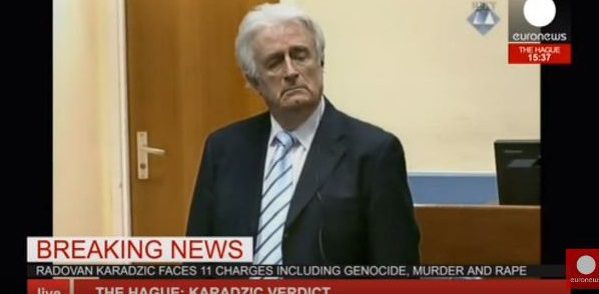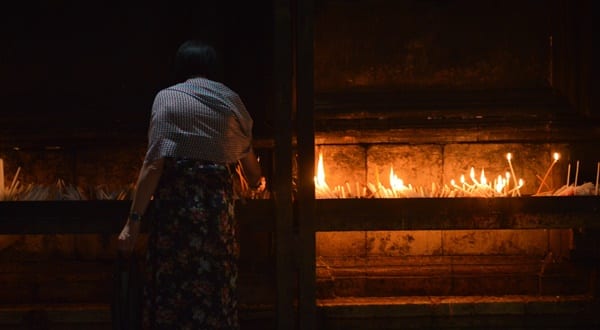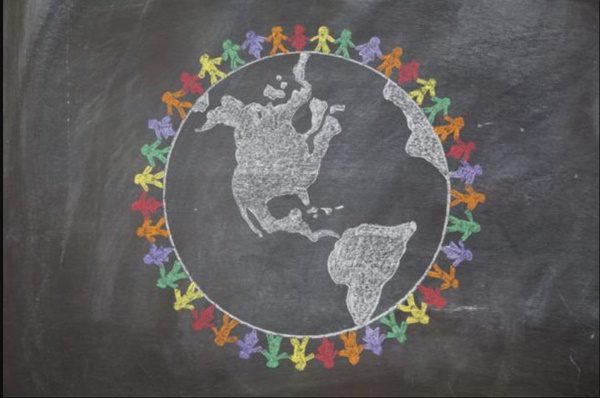
Recently, a United Nations Tribunal convicted Radovan Karadzic, a Bosnian Serb leader, of genocide, war crimes and crimes against humanity during the civil war that tore apart the former Yugoslavia. The evidence was overwhelming and his guilt was never in doubt. His atrocities as listed in the New York Times account of March 24, 2016, are horrifying.
Mr. Karadzic, 70, was sentenced to 40 years in prison for his role in lethal ethnic cleansing operations, the siege of Sarajevo and the slaughter of 8,000 Muslim men and boys in Srebrenica in 1995, in proceedings that were likened to the Nuremberg trials of former Nazi leaders.
The Karadzic Defense
Yet, Karadzic offered a vigorous defense on his own behalf, insisting on his innocence. Read his response to the trial process and his conviction, paying close attention to the parts I have highlighted:
Peter Robinson, an American lawyer who was Mr. Karadzic’s chief legal adviser, said his client “was disappointed and astonished by his conviction and the judges’ reasoning, and he asked us to appeal his sentence.”
Mr. Karadzic acted as his own lawyer in the proceedings, portraying himself as a man of peace who was driven solely by his desire to protect Serbs.
In his closing statement, he said that he took “moral responsibility” for crimes committed by Bosnian Serb “citizens and forces.” But he denied having ordered killings and said he was not aware that a massacre would take place at Srebrenica.
During the trial, to the amazement of experts following the case, he described himself as a “true friend to Muslims” who had tried to make them feel safe, despite his fiery speeches leading up to the war.
He mounted a zealous defense, bringing 238 witnesses to attest to his innocence. He based his defense on the premise that the Bosnian war broke out because Serbs had no choice but to defend themselves against a Bosnian Muslim separatist regime that intended to create an Islamic state.
Karadzic insists he is a “man of peace” and a “true friend to Muslims”. How is that possible? Was there a gross miscarriage of justice and the Tribunal convicted an innocent man? Or are Karadzic’s claims of goodness evidence of insanity or wickedness or just good lawyering?
Are We Innocent?
None of the above. You see, what we have here is a case study in an all too common self-delusion that leads to the justification of violence. We see what Karadzic cannot, that his violence was unjustified and genocidal. We have no problem condemning his violence despite his failure to confess his guilt. He is guilty and no amount of self-justification or claims of self-defense can change that fact.
But what we cannot see is that we are much more like Karadzic than we would like to admit. Like Karadzic, we engage in self-justifying narratives that hide our own guilt from us. Does that make you angry or uncomfortable? If you doubt me, try reading the excerpt above as if the Karadzic quotations were spoken by an American president or politician. Does it sound familiar? Do you hear echoes of American justifications of the war on terror or immigrants or racial and gender minorities?
What would the verdict be if the United States were tried for war crimes and crimes against humanity? There is good reason why the U.S. withdrew from the International Criminal Court and threatens military action if U.S. nationals are held by the court. If Karadzic and others like him are found guilty, our political and military leaders are well aware that they would face a similar fate. Their defense would be no more credible that Karadzic’s was.
Look, we can opt for the Karadzic approach and live in denial of our guilt. We can insist that we are peaceful people even as we bomb or torture or imprison or exclude or demonize others. Or we can accept the difficult truth of our complicity in a sliding scale of violent atrocities. I get how compelling it is to believe that we are on peacemaking missions when we seek to defeat ISIS or fight terrorism. But the real work of peace will begin when we accept that, like Karadzic, we may not be as innocence as we think.











